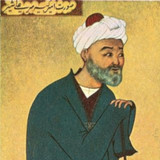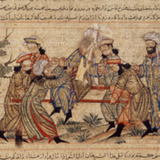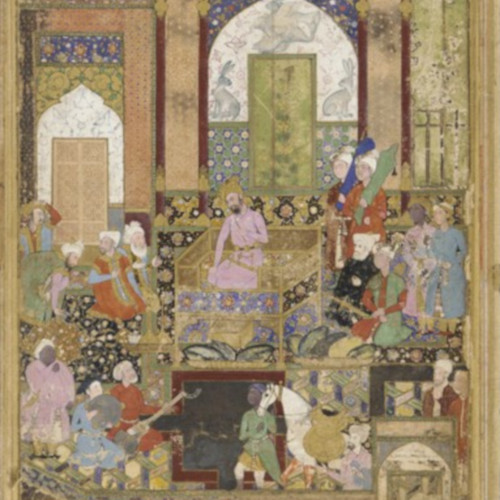Government is the study and practice of statecraft, including state administration and the practice of politics.
The art of statecraft in medieval Central Asia was defined by rulers attempting to manage a world in flux. Islam's incredibly rapid rise overturned both ruling systems and their religious underpinnings. The subsequent schism of Islam into various sects and schools added complexity to the task of government. At times, the need to maintain stability among disparate political and religious interests coupled with the practical concerns of providing for a large population in a harsh environment seems to have promoted a kind of broad-mindedness in Central Asian rulers even as their efforts turned primarily to promoting the faith, culture and language of the ruling class. Many kingdoms and caliphates, though hardly all and not in all periods, were managed with a surprising degree of tolerance. Not only was it necessary to find a system under which peace could be kept and justice dispensed, but the system could and should improve upon what had come before and demonstrate the superiority not only of the new rulers, but of their culture and convictions. Some Central Asian rulers thus promoted scholarship and became patrons of the arts and sciences with an intensity seen nowhere else in the medieval world.
Scholars Who Studied Government
 Navai
Navai
 Nizam Al-Mulk
Nizam Al-Mulk

